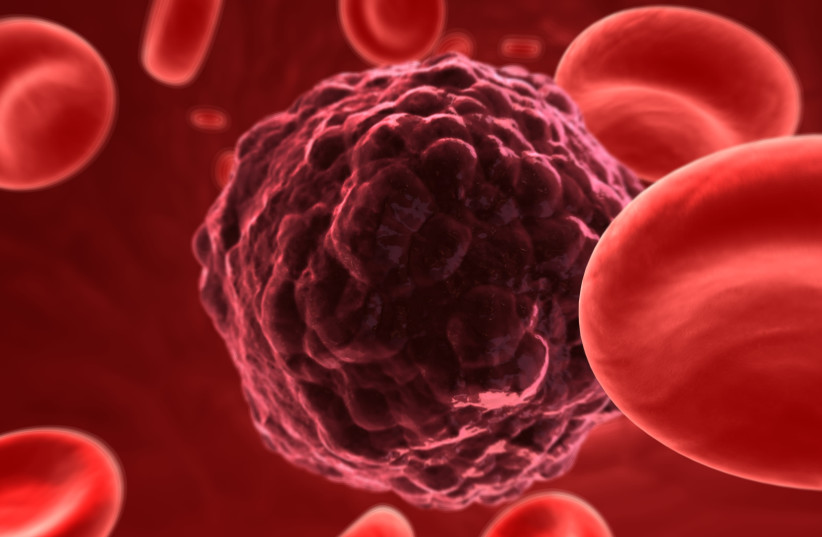Israeli celebrity model and influencer Adele Besapov recently revealed that she is recovering from cancer and underwent surgery to remove a thyroid tumor.
Bespov shared photos from the hospital on Instagram and told her followers about the moments of terror after she was given the diagnosis, as well as how she only discovered her cancer thanks to an eagle-eyed follower.
"Three weeks ago, I got a call from my amazing endocrinologist, Iris, who told me to come to see the results. Now, when I watch movies and I see someone is called to the hospital, it's never good, so I said to her over the phone while crying 'Iris, do I have cancer?' She said 'Yes, thyroid cancer,'" Adele wrote.
"Another phone call later, Iris told me that this cancer has a nearly 100% recovery rate. Thank God, it was caught at a relatively early stage. I needed a thyroidectomy... yesterday, I had surgery to remove my thyroid gland."
What is thyroid cancer?
The thyroid gland is located in the front of the neck. It secrets hormones responsible for the body's metabolism, memory and other bodily functions.

The causes of thyroid cancer aren't completely known, but a link has been found between the condition and previous exposure to radiation in the neck or chest, which could be from prior cancer treatments.
There are also some genetic factors, so the risk of developing thyroid cancer is higher if a family member has also developed it.
In general, thyroid cancer mainly affects women and even relatively young people. Women are diagnosed with thyroid cancer three times as much as men, with the condition being more common between ages 26-59 (70% women, 65% men). Around a quarter of cases in women and a fifth of cases in men were diagnosed in patients aged 60 and up.
This is notably different from other types of cancer, where the incidence rate generally increases with age. However, this type of cancer isn't common in children.
High chances of recovery
Thyroid cancer is considered relatively simple to treat. This is mainly because most thyroid tumors turn out to be benign and not malignant.
The most common type of the four types of thyroid cancer is papillary, which is makes up 80% of cases and is considered the easiest to treat.
In instances when the tumor is malignant, 97% of patients recover within five years after diagnosis and surgery.
According to the Israel Cancer Association, surgery is always the initial treatment for this cancer. After that comes radioactive iodine treatment, hormone therapy and, in very advanced cases, external radiation treatments.
How can you spot a thyroid tumor?
Thyroid cancer tends to develop slowly and symptoms might not manifest for years. However, early detection can save your life.
Here's a simple test you can use to try and spot a tumor, and all you'll need is a mirror and a glass of water.
- Angle the mirror at the neck area. The thyroid gland is located between the collarbones in the middle of the throat area.
- Tilt your head back slightly.
- Drink from the glass of water and look at your neck, try to spot any bumps or lumps.
- Aside from this, be on the look for any of he following symptoms: Unfamiliar swelling in the neck, change in voice, hoarseness, pain and difficulty breathing or swallowing. Also be on the lookout for symptoms of hypothyroidism – such as depression, irregular menstrual cycles, dry skin, weight gain, fatigue and sensitivity to the cold – and hyperthyroidism – sensitivity to heat and rapid heartbeat.
- If you spot a lump or suffer from some of these symptoms, see an endocrinologist. Remember, thyroid cancer is usually not life-threatening and can be easily and effectively treated, especially if caught early.
